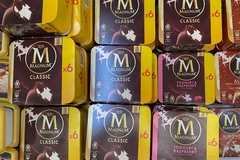
- Industry news
Industry news
- Category news
Category news
- Reports
- Key trends
- Multimedia
- Journal
- Events
- Suppliers
- Home
- Industry news
Industry news
- Category news
Category news
- Reports
- Key trends
- Multimedia
- Events
- Suppliers
Ajinomoto Gains Marketing Authorization In Europe For The New Novel Food Ingredient Dihydrocapsiate

Like capsaicin, capsinoids are naturally occurring substances that activate receptors in the body and can favourably affect energy expenditure, but they do not taste hot. Ajinomoto Co., Inc. has conducted an extensive programme of animal and human studies on capsinoids and dihydrocapsiate received a positive opinion on safety from the European Food Safety Authority in July this year.

4 Dec 2012 --- Ajinomoto Co., Inc. announced that the EU Commission has just published the Implementing Decision authorising the placing on the market of dihydrocapsiate (DHC) as a novel food ingredient under Regulation (EC) No 258/97 of the European Parliament and of the Council.
"The entirely novel characteristics of DHC and the benefit of increasing energy expenditure safely will enable our customers in the EU food and beverage industry to innovate completely new and exciting applications for the consumer," said Shoji Tsubuku, General Manager of Ajinomoto Co., Inc.
Dihydrocapsiate has held GRAS status from the U.S FDA as a food ingredient since March 2009 but the EU approval is particularly important as it will drive global expansion into a much wider range of food products throughout Europe.
About Dihydrocapsiate
Dihydrocapsiate is found naturally in chilli peppers and is a member of the capsinoid family of compounds. It is structurally similar to capsaicin the substance responsible for the sensation of hotness in chilli peppers which has long been recognized to increase metabolism and energy expenditure. Like capsaicin, capsinoids are naturally occurring substances that activate receptors in the body and can favourably affect energy expenditure, but they do not taste hot. Ajinomoto Co., Inc. has conducted an extensive programme of animal and human studies on capsinoids and dihydrocapsiate received a positive opinion on safety from the European Food Safety Authority in July this year.










